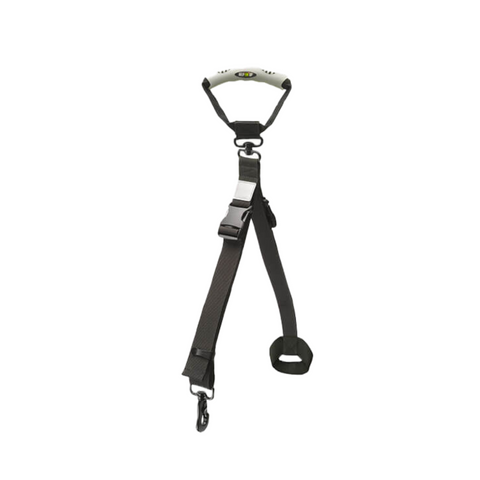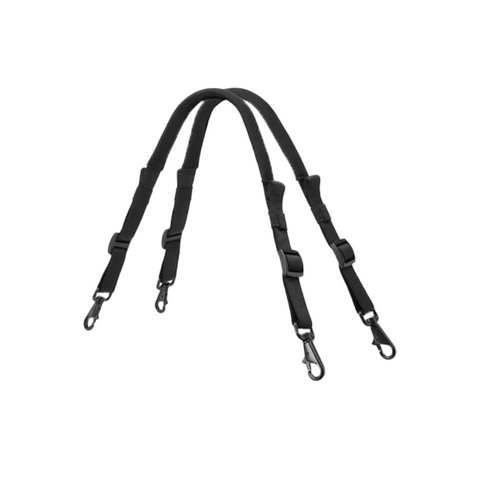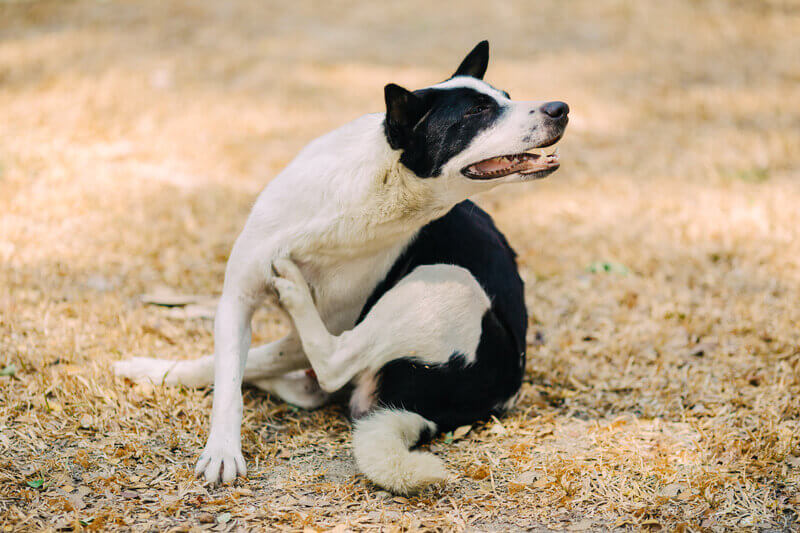Skin allergies are quite common in dogs. Just like humans, dogs can be allergic to a range of things, from products (shampoos, carpets, insecticides) to environmental factors (pollen, mold) to parasites (ticks and fleas). Anxiety, dry skin and hormonal imbalances can also contribute to your dog’s scratching. Dogs itch and scratch normally, but when it becomes compulsive, it means your dog is extremely uncomfortable. Let’s explore some of the signs and treatments to help your pooch.
The medical term for scratching related to excessive itching is pruritus. This is the second most common reason people take their dogs to the vet (gastrointestinal problems such as diarrhea top the list). If you live in a climate with low humidity, itching and allergies are even more common.
If your dog itches uncontrollably, this is one sign he could have allergies. Other include:
- Frequent licking, chewing or biting
- Excessive rolling, rubbing or scooting
- Recurrent ear problems
- Loss of hair
- Body odor
- Changes in skin (rashes, redness, scabs)
If untreated, allergies can result in atopic dermatitis which is where the itching and skin infections become worse. Your dog can develop a “hot spot”, a red, wet area that develops from persistent licking and chewing most often found on the head, chest, and hips. These can hurt!
Treatment – Natural
Because there are so many reasons your dog may be itching, you should always check with your vet first. There are several treatment options, some which are natural and others which require a prescription.
- Parasites – There are a variety of flea and tick products available at the pet store. Make sure to clean your dog’s bedding and toys often to prevent re-infestation.
- Dog food – You may have to experiment with different brands of dog food. Your vet may suggest eliminating beef and wheat or adding a supplement to your dog food. Grain-free diets are often suggested for dogs with any type of allergy (or no allergy at all!) but if this isn’t possible, consider feeding organic, whole grains.
- Bathing – You may need to bathe your dog once a week with a gentle oatmeal shampoo and brush and comb him regularly to remove dead skin and remove allergens on the top of his skin and fur. If you have your dog groomed, speak to the groomer about turning down the heat on the blow dryer (it’s usually set pretty high).
- Apple cider vinegar – Raw, organic apple cider vinegar has proven to be helpful for pets with allergies. If your dog has “hot spots”, apply a 50/50 solution with a spray bottle. This solution can also be used to clean out your dog’s ears. The acidity of the mixture kills off the yeast that causes allergies.
- Coconut oil – Natural virgin coconut oil has antiviral, antibacterial, antimicrobial, and antiprotozoal properties. That means it can reduce yeastand fungus on contact, both inside and out; and it’s also very healing for irritated skin, hot spots, abrasions and cracked paws. Drizzle about ¼ teaspoon over your dog’s food once or twice/day.
- Olive oil – Olive oil is also great to add to your dog’s food as it contains antioxidants and vitamins E & K that can replenish your dog’s fur coat. Add 1 to 2 tablespoons two to three times/week.
- Plain yogurt (with no sugar or antibiotics) keeps good bacteria in your dog’s tummy. This can boost their immune systems, warding off skin and yeast infections.
- Supplements – There are many supplements on the market to combat itching including those with Omega-3 fatty acids.
It is sad when your furry companion is constantly itching. Try different home remedies and when all else fails, a visit to the vet is in order!



